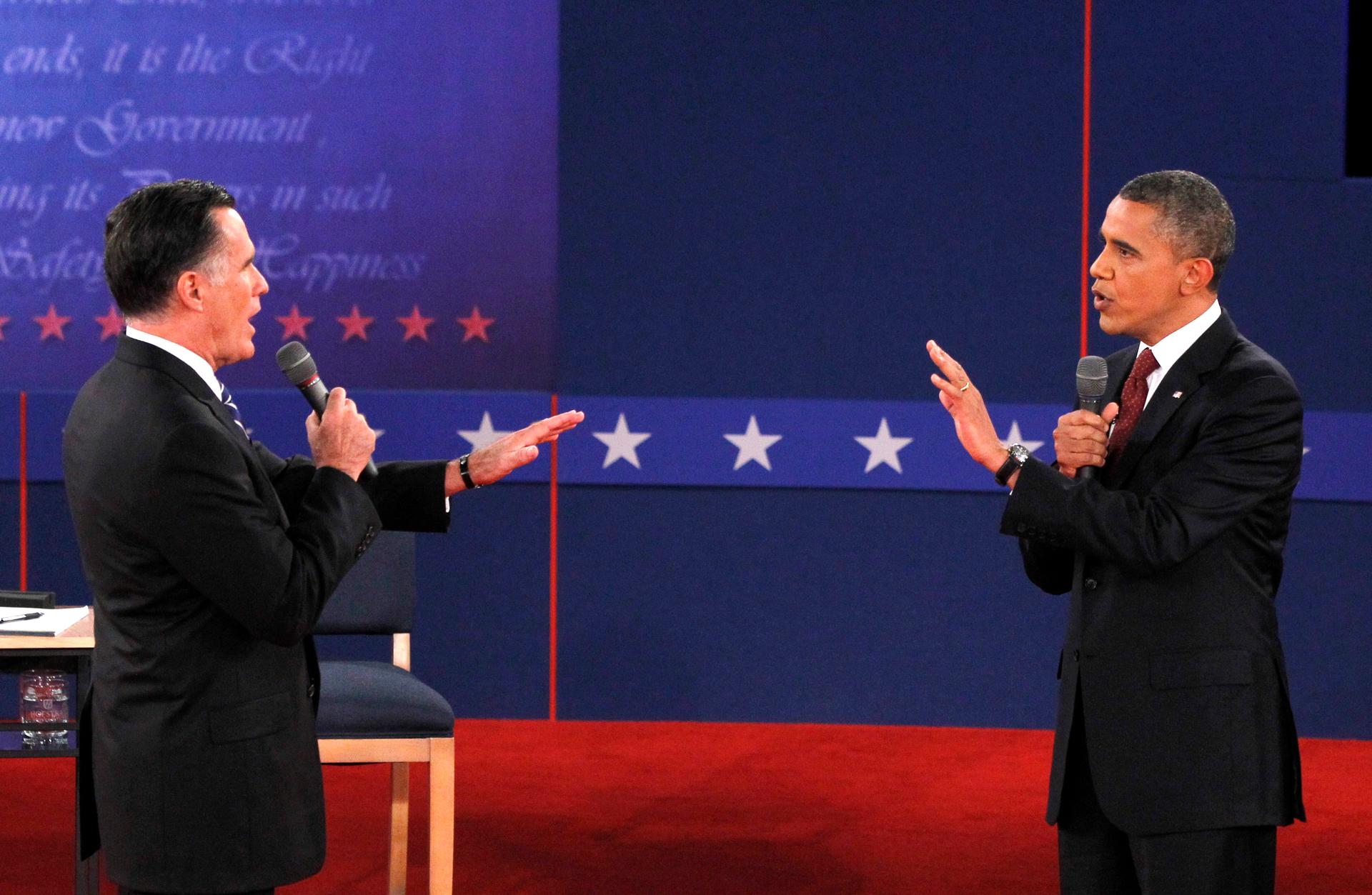Presidential debate arrives where roots of financial crisis can be traced
President Barack Obama, right, and Republican presidential nominee Mitt Romney speak during the second presidential debate in Hempstead, N.Y., Oct. 16, 2012. (Photo by Lucas Jackson/Reuters.)
A group of young J.P. Morgan bankers met for a weekend retreat in the South Florida city of Boca Raton.
It was that weekend in June 1994 when bankers from J.P. Morgan’s swap department conceived of credit derivatives, a creative financial tool that would allow banks to loan money with almost no risk.
We now know that credit derivatives helped hasten the housing crash, which led to the financial crash that has taken us to the recession we’re currently fighting our way out of. As Gillian Tett, assistant editor of The Financial Times, details in her book “Fool’s Gold: How the Bold Dream of a Small Tribe at J. P. Morgan Was Corrupted by Wall Street Greed and Unleashed a Catastrophe,” the retreat included hard-core drinking, partying, and, eventually, brainstorming that delivered these derivatives to market.
The financial crisis comes full circle Monday night, back to Boca Raton, where President Barack Obama and Republican Presidential nominee Mitt Romney will go head-to-head in their final debate, at Lynn University.
But don’t expect that little history lesson to be front-and-center for the two candidates — in fact, this debate is supposed to be exclusively about foreign policy. But the economy, no doubt, will find its way into the discussion, just as foreign policy intruded on what was supposed to be a domestic debate earlier this month.
Tett says societies across the world create spaces in their lives, in time and geography, where people can step away from the hustle of day-to-day, and think about what’s happened and what’s to come. Boca Raton, she said, is one of those places.
“Boca Raton has served that purpose for the modern investment banking world and sometimes the political world too,” she said, “by providing a retreat for people to step out of their usual rat race. To pause, and think, and discuss important themes.”
That’s exactly what debate moderators hope Obama and Romney will do: discuss important themes. Boca Raton has particular resonance to the debate, because of Florida’s economic struggles since the housing market collapsed. That collapse, Tett has shown, can be tracked back to Boca Raton and the J.P. Morgan bankers. In other words, the technology for turning mortgages tied to houses into financial instruments that tie to homes in only the abstract sense, Tett said, was very much conceived at that 1994 meeting — and later in the decade.
“The reality is, these really extraordinary financial innovations and some of the excess we saw in the last decade, are things that are still very much weighing on the economy,” she said.
Tett says the irony of all of this is that, originally, the people who created these credit derivatives set out to make the financial system safer — not build the shifty foundation that led to the economic collapse.
“Unfortunately, like so many innovations, those credit derivatives spun out of control and were taken on very much by other people, not the original developers, to create the excesses which damaged the economy in a very major way,” Tett said.
